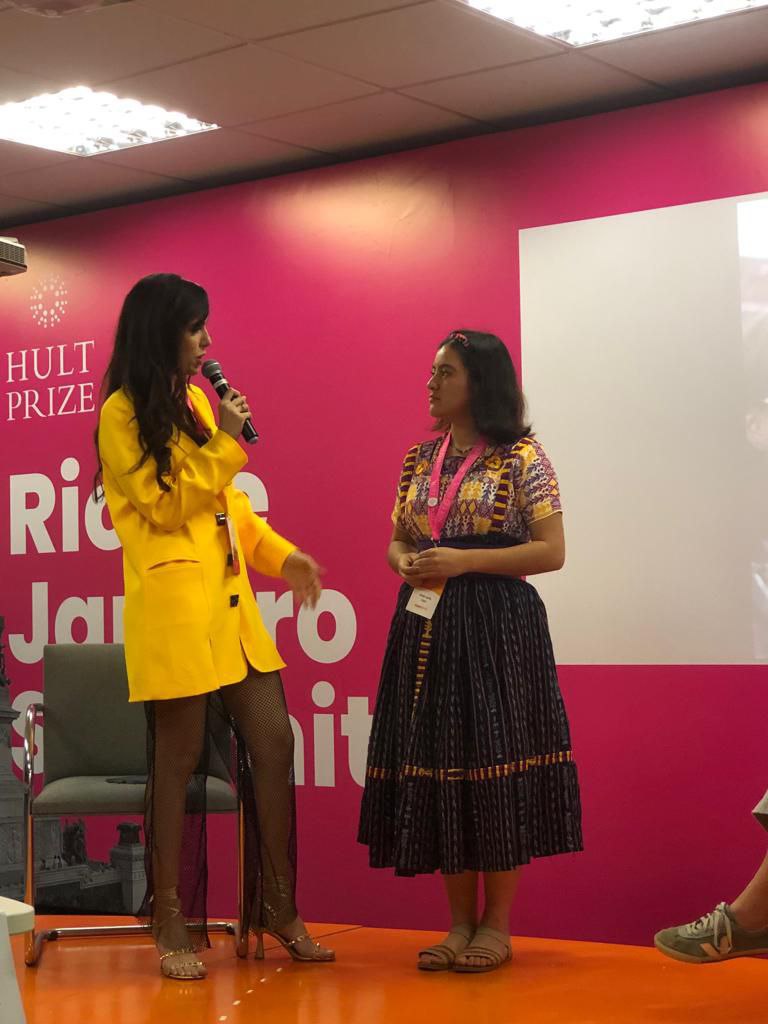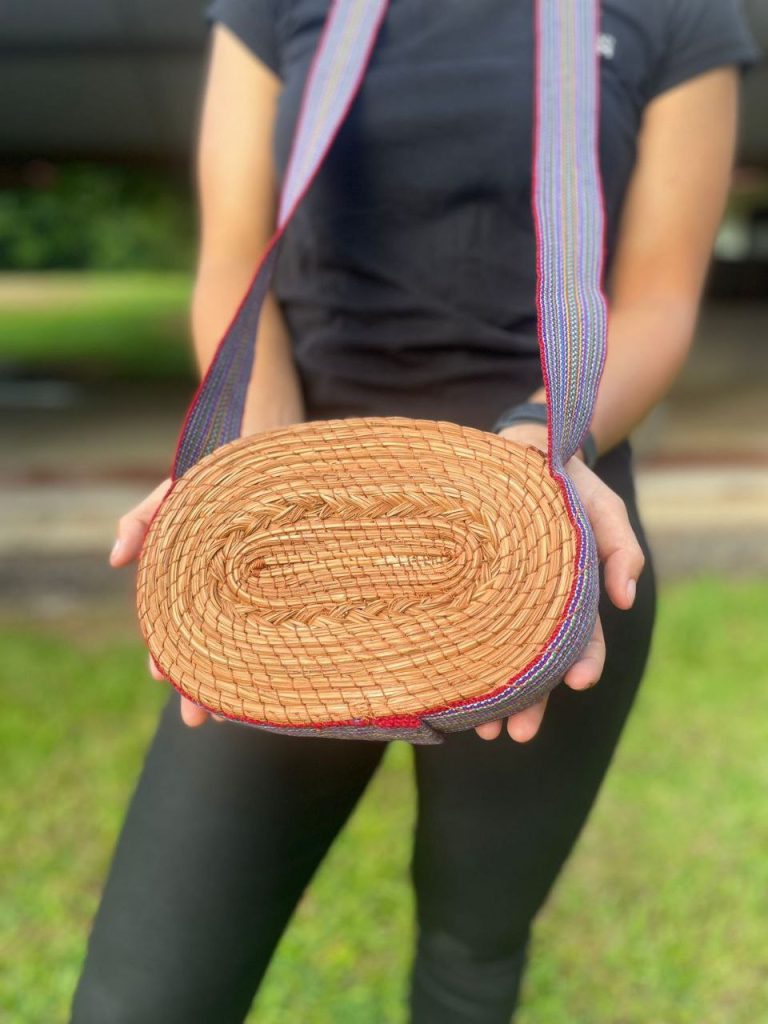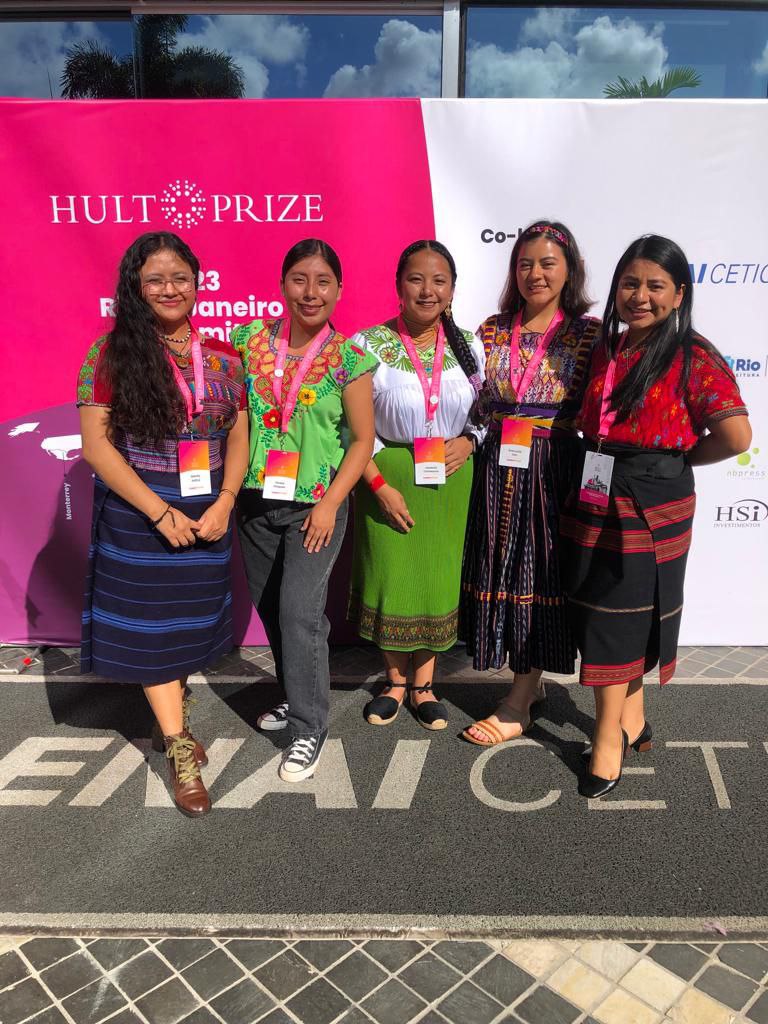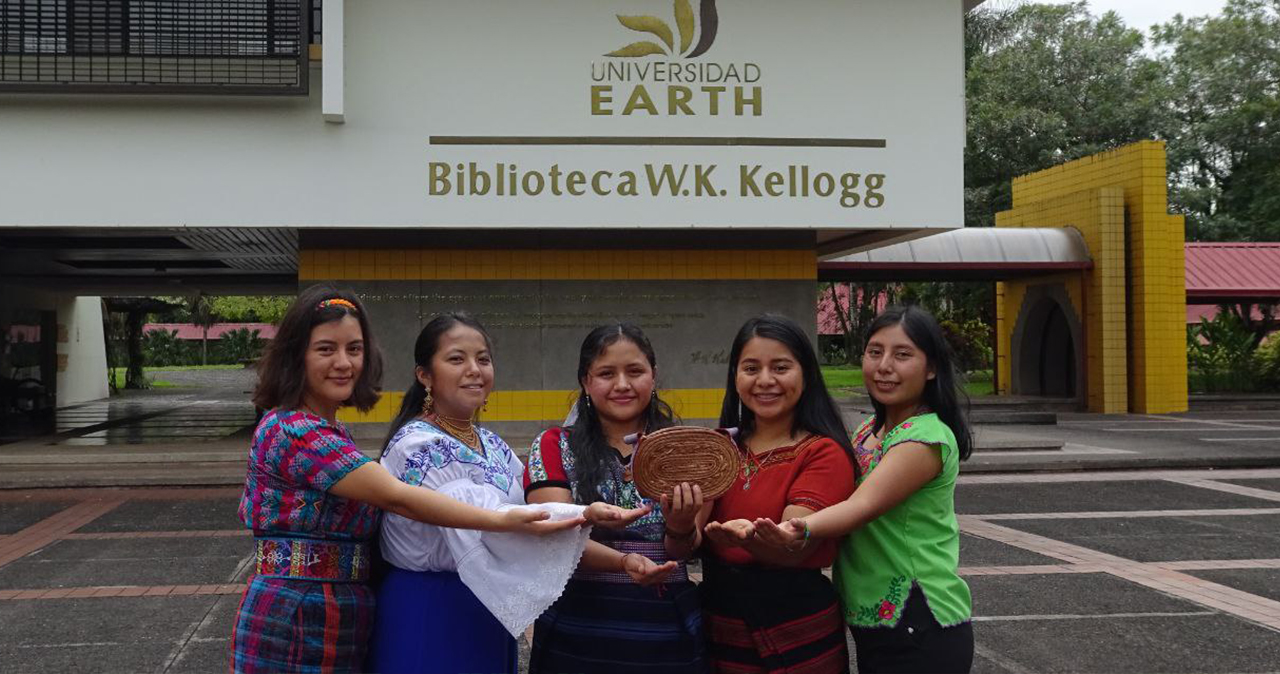It is the first day of the Hult Prize Summit in Rio de Janeiro, a competition that challenges university students to seek solutions to major global problems through social entrepreneurship. The winning team will be awarded one million dollars to develop their project. On stage, Miss Brazil 2022, Mia Mamede is moderating a forum on fast fashion and its environmental impact. In the audience are EARTH students Wendy Esquit (’24, Kaqchikel Maya from Guatemala), Floridalma Miguel (’24, Q’anjob’al Maya from Guatemala), Teresa Vázquez (’24, Zoque Maya from Mexico), Ana Morales (’25, Kaqchikel Maya and K’iche’ from Guatemala), and Jessenia Mármol (’24, Kichwa Karanki from Ecuador). The women are all indigenous students of agronomy, not fashion, and they are paying close attention. Mia’s eyes are fixed on the traditional dress of the five students, and she calls one of them to the stage.

Ana stands, walks to the stage, and takes the microphone. She answers the host’s question—her dress is special in the Mayan culture. It is hand-embroidered with weather-resistant materials that come from the earth. Ana explains that this is the outfit she wore for her “quinceañera,” a tradition in Latin America celebrating a girl’s 15th birthday. She laughs, explaining that although it has been seven years since she wore her dress for the first time, it is still the same. Her clothing has nothing to do with the disposable fashion that is now seen in every shop window in the world. Ana explains her philosophy:
“Sometimes the work of artisans who create objects and textiles by hand, of better quality and durability, is underestimated. Sustainability and global changes can be born from small actions and personal decisions because we believe that the personal is political and that we are what we listen to, what we eat, and what we wear. If we start with small actions, such as becoming aware of what we use, we are already contributing to the transformation that the world needs.”
This moment that happened on stage in Rio de Janeiro was key for the five women who created Kaji’ I’x, an enterprise focused on making compostable purses from pine needles and agave yarn, raw materials that have been used by native peoples for thousands of years. With this project they competed in the Hult Prize, focused this year on the fashion industry. Wendy says that some people wondered what five indigenous women from rural areas, who are future agronomists, were doing in a fashion competition. They took the opportunity to answer—“Where does the corn yarn you want to use for your dresses and the dyes you use to color your textiles come from? We work and study the land to learn how to produce this raw material.”
During the three-day summit, from June 2nd to 4th, the five students presented their venture to the Hult Prize jury. In a four-minute pitch, they explained how Kaji’ I’x is named in honor of the Mayan calendar and how it has a spiritual meaning as the protector of the mountains and women. The women elaborated that the purse’s design begins with a spiral that symbolizes the zero moment in Mayan cosmology, and how pine and agave decompose quickly in a few months under simple composting processes. Their aim is to rescue ancestral knowledge by connecting it to technology, marketing, and to the world’s sustainable needs. They also seek to generate a source of employment for native peoples, maintaining their connection with nature and promoting the socioeconomic development of their communities. The original idea for the project stemmed from Wendy’s family business, Artesanías Gaby.

Wendy, Floridalma, Teresa, Ana, and Jessenia made it to the Hult Prize Summit in Rio de Janeiro after winning first place in an internal competition at EARTH University, led by Tulisha Malichi (‘25, Zambia), coordinator of the Hult Prize at EARTH. Five teams participated. The second-place team will present their social venture at the Summit in Monterrey, Mexico, and the third will present virtually at the Summit in New York.

Although Kaji’ I’x didn’t make it to the competition’s next round, the learning experience was monumental. “We didn’t make it to the next round, but our work is more than that. We gained a lot during the process and on the trip to Rio de Janeiro because we connected with people and defended the work of indigenous artisans. People listened and understood our message,” Ana explained.
Floridalma, Teresa, Wendy, Ana, and Jessenia competed with students from prestigious international universities, many of which have programs focused on the textile industry. They are proud of their achievements because the path has been challenging. The women have faced a world that sometimes has prejudices about their clothing, language, and ancestral culture. Their grandmothers and mothers did not have the same opportunities, and their people were marginalized and colonized. They feel responsible for bringing about a generational change and for being a starting point for other girls and young women who want to dream big.
